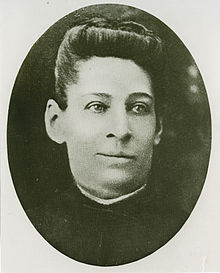
If asked to picture a great American philanthropist from the past, you might envision one of the famous captains of industry, such as Andrew Carnegie or John Rockefeller, whose generosity helped shaped this nation. Throughout history, however, women have also played a vital role in the philanthropic realm, including one of the founders of United Way, Frances Wisebart Jacobs.
The child of Jewish-Bavarian immigrants, Jacobs was born in Kentucky in 1843. The family soon relocated Cincinnati, Ohio, where young Frances went on to work as a teacher before meeting her future husband Abraham Jacobs. The couple married in February 1863 and set out on an adventure across America – moving westward along with throngs of others in pursuit of the American dream. They settled in Colorado, first in Central City, then Denver.
It was in the Mile-High City that Jacobs’s philanthropic involvement began. In 1872, she organized, and became president of, the Hebrew Ladies’ Benevolent Society (known today as Jewish Family Service of Colorado). Although founded as a charitable organization focused on providing aid to members of Denver’s growing Jewish community, Jacobs soon realized that the major problems facing the Jewish community – poverty, illness and lack of reliable access to food – impacted many other groups, as well. So she broadened the scope by working to establish the Denver Ladies’ Relief Society in 1874.
In 1887, Jacobs joined Rabbi William S. Friedman, Dean H. Martyn Hart, Monsignor William O’Ryan and Reverend Myron Reed to create the Charity Organization Society. This was an innovative collaboration among community assets that helped further altruistic efforts through coordinating fundraising and sharing of proceeds with more than 20 area charities. If this structure sounds familiar, it’s for good reason. The Charity Organization Society would later be called the Community Chest before eventually being re-named United Way. Jacobs served as secretary of the organization until her death, which unfortunately came just five years later.
Jacobs funeral, open to people of all faiths, classes and races, was attended by more than 4,000; and a memorial service the following week included such prominent speakers as Denver’s mayor and the governor of Colorado. A co-worker praised Jacobs’s commitment to the community, saying: “For long years she gave her time and her services to the practical work of charity, and looked more poor and wretched people in the face than any other person in Denver.”
Following her death, Jacobs’s work in the field of public health was notably recognized when the Denver Jewish Hospital Association voted to name a new hospital in her honor. Known today as National Jewish Health, the hospital was integral in defeating the tuberculosis epidemic and is still world-renowned for its treatment and research of respiratory, pulmonary, cardiac and immune disorders. Jacobs was further honored with a bronze statue in the hospital’s lobby, and she’s the only woman to be featured in the Colorado State Capitol Building Rotunda’s stained-glass windows memorializing 16 of the state’s greatest pioneers.
From the very beginning, women have been important players in United Way’s work and mission. You can read more about the great women who have helped shape United Way of Central Alabama (UWCA) – including the incandescent Alice McSpadden Williams – on our blog. Or learn how you can get involved with UWCA’s female-focused leadership society Women United.